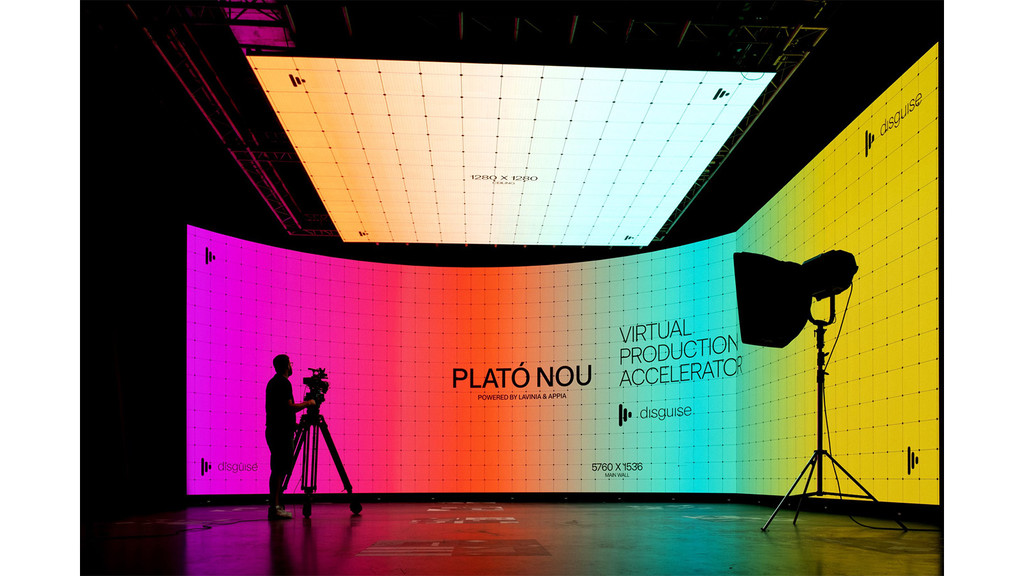
AUD awards 2023 Charles Moore Traveling Studio prize to Heather Roberge and Lori Choi for “Climate Caravan,” Natasha Sandmeier and Liam Denhamer for “Narrative Engineering: Myth & Machine”
Oct 5, 2023
UCLA Architecture and Urban Design (AUD) is pleased to announce that the 2023 Charles Moore Traveling Studio award has been granted to Heather Roberge and Lori Choi’s “Climate Caravan: Mobility is Resilience,” and Natasha Sandmeier and Liam Denhamer’s “Narrative Engineering: Myth & Machine.” The award will support travel-based site visits and research for each studio; “Climate Caravan” will travel to Finland and Sweden, and “Narrative Engineering” will visit Barcelona, Spain, each in January 2024.
AUD's Charles Moore Traveling Studio award was established in 2004 to commemorate architect Charles Moore’s exemplary commitment to teaching, and to honor his belief in the unique importance of the study of place to the practice of architecture. By bringing faculty expertise to bear on their experience of other locales, it is AUD’s aspiration that students investigate firsthand the diversity of the world’s cultural and natural settings and their various impacts on the design of the built environment.
Roberge and Choi’s year-long research studio, “Climate Caravan,” takes up prefabricated housing systems in the context of looming climate crisis and climate-related migration. The studio questions the expectation of permanence that accompanies our housing production, and the collective desire to be rooted to privately held property, even when such land is in peril.
In order to decouple home and land from its associated notions of permanence, Roberge and Choi's studio proposes prefabricated housing systems designed for future mobility and new organizations of community afforded by the aggregation of this housing. Each proposal is tested on Los Angeles test bed sites, cultivating critical stances toward prefabricated housing.
“We consider how existing infrastructure and new housing systems might accommodate the inevitability of migration–our future climate caravan,” they write.
As a continuation of their ongoing research, Roberge and Choi’s studio will travel to Sweden and Finland in January 2024. There, they will visit technology companies investing in prefabrication, and architects and entrepreneurs who have led in the use of timber for prefabricated, climate responsive solutions to housing. Students will also visit a variety of sites and precedents including Villa Mairea, designed by Finnish modernist Alvar Aalto, and BoKlock in Malmö, Sweden, which creates and delivers factory-made homes composed of wood.
Meanwhile, Sandmeier and Denhamer will visit Barcelona, Spain, in January 2024 with their year-long “Narrative Engineering: Myth & Machine” advanced topics studio. There, they will visit PLATÓ NOU, an XR and virtual production agency run by architects Antoine Vaxelaire and Patrick Morris. With the studio’s focus on new forms of technology in conjunction with world-building and narrative, this trip will enable students to have firsthand experience engaging with an LED volume operated by PLATÓ NOU. This will, in turn, provide students with the opportunity to gain rare hands-on experience with cutting-edge technology found within the entertainment industry.
The “Narrative Engineering” studio will also the Barcelona office of Kilograph, a creative agency founded by Keely Colcleugh that focuses on visualization, storytelling, and new forms of technology. The studio will also visit a number of the architectural projects within the city of Barcelona, specifically works by Enric Miralles, whose unique form of representation and use of technology in the construction of new forms of architecture will be an integral design reference for the studio.
Last year, AUD awarded the Charles Moore Traveling Studio honor to Julia Koerner for her research studio “Fit for the Future: 3D Printed Sustainable Building Skins,” which investigated emerging 3D-printing technology and questioned how this innovation, combined with sustainable building materials and methods, may create risk-resilient architecture for the 21st century.
Supported by the award, Koerner and the studio traveled to Austria in January 2023. They visited cutting-edge 3D-printing, digital-fabrication, and construction practices, including Swarovski’s 3D-printing glass facilities, gleaning insight into the 3D-printing materials and methods emerging on architecture's horizon. They also toured Vienna’s intricate, art nouveau building facades and baroque churches for another layer of design precedent and inspiration.
Related Faculty |
Natasha Sandmeier, Heather Roberge, Liam Denhamer |